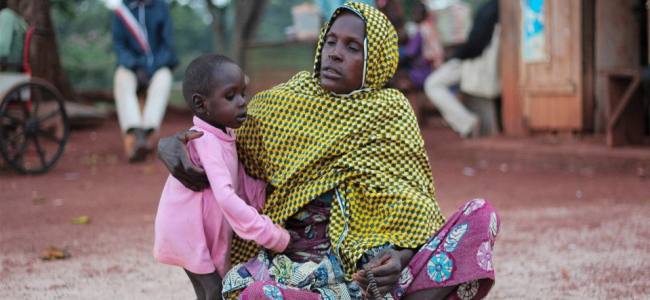
Only 20% of FAO humanitarian appeals covered
[document url=”http://reliefweb.int/sites/reliefweb.int/files/resources/a-i4767e.pdf” width=”600″ height=”740″]
Foreward
In 2015, the world continues to face an unprecedented number of humanitarian crises. Over USD 750 million are required to address the immediate challenges facing agriculture and food security in the countries and regions highlighted in this mid-year review of the Food and Agriculture Organization of the United Nations’ (FAO) participation in the 2015 humanitarian appeals. Even though agriculture is a source of livelihood for 75 percent of the population in most of the affected countries and the FAO appeal only represents a tiny fraction of the overall humanitarian needs, resource partners’ contributions received to date barely cover 20 percent of FAO’s appeal. And the needs are bigger than ever.
Most recently, Nepal’s devastating earthquakes severely impacted farming families.
The deepening food security and nutrition crisis in South Sudan is raising serious concerns and the number of severely food insecure people is expected to escalate from 2.5 million at the beginning of the year to at least 4.6 million by July. The situation is likely to be even worse if the renewed conflict in Greater Upper Nile continues to spiral down.
Globally, conflict and protracted crises are further weakening the resilience of families and communities in the Central African Republic, the Democratic Republic of the Congo, the Sahel, Somalia, Syria, Iraq and Yemen. Together these crises account for about 50 percent of FAO’s total appeal. Millions of people, many of them food insecure and suffering from malnutrition, are fleeing violence in the Central African Republic, Iraq, South Sudan, Syria, and now Burundi. Without assets or livelihoods, they mostly depend on humanitarian assistance for their very survival. These displacements have knock-on effects, often destabilizing neighbouring countries and placing increased pressure on already strained service infrastructure and food availability in camps and host communities.
Building resilient livelihoods is an integral part of FAO’s agriculture and food security interventions and plays an essential role towards peace building and conflict mitigation. Conflicts mainly affect rural populations, heavily impacting food and agricultural production and smallholder livelihoods. The rehabilitation of agriculture, therefore, has a central role to play in building and consolidating peace while contributing to food security and rural development. FAO draws on the many diverse skills of its vast pool of experts to address these challenges. From day one of the response and relief efforts we start to protect and restore the livelihoods of affected populations, helping them to stay on the land and start producing food for their families and communities, building resilience and laying the foundations for longer-term recovery.
A huge effort is needed to increase the resilience of the agriculture-based livelihoods of the most vulnerable populations to ever increasing threats and crises. Our goal is to preserve livelihoods and dignity and to get people back on their feet. We can do it, but we cannot do it alone. We need your support.
Laurent Thomas
Assistant Director-General
Technical Cooperation
from ReliefWeb Headlines http://bit.ly/1DcTt6q
via IFTTT



